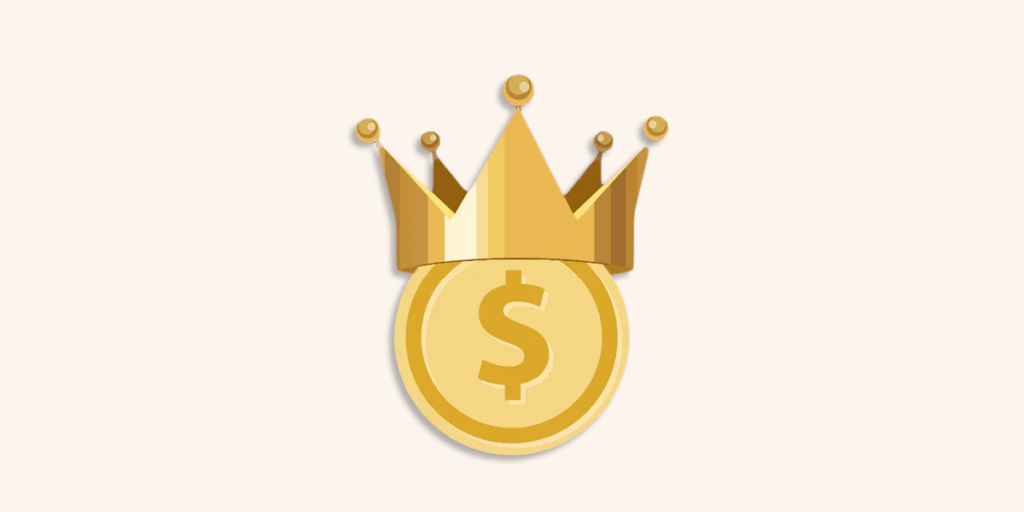Should you buy a house with cash?
All-cash real estate transactions are on the rise. According to RedFin data, 1 in 3 US homebuyers are paying all cash. Compare that to data published in 2022, the National Association of REALTORS® Profile of Home Buyers and Sellers reports 87% of home buyers finance their purchase by taking out a loan to pay for it. While the vast majority of home buyers are using financing to purchase homes, we can attribute the current shift towards cash purchases with the high cost of borrowing money.
We’ve all heard the idiom, “Cash is King” and if you’ve got the cash on hand, making an all cash offer does come with advantages. Let’s take a look at the advantages and disadvantages of using cash to pay for your next real estate purchase.
Can Cash Be Used To Purchase A House?
When we say we’re a “cash buyer” we don’t mean we’re literally showing up at the closing table with a briefcase of unmarked bills each time we purchase a home. Cash buyers pay for the entire cost of the house with liquid assets (cash), usually in the form of a wire; they are not taking out a loan.
Why would you buy a house cash?
We use cash for a number of reasons.
Using cash to pay for a property can allow us to create a quick closing process, which many sellers appreciate.
Often, the condition of the properties we purchase may not be habitable and some traditional lenders will avoid lending on such purchases. Thus we increase the number of properties we’re able to consider purchasing by using cash.
Because sellers don’t have to worry about a buyer’s financing falling through at the last minute, as can happen with mortgages (for any number of reasons), sellers frequently prefer to work with cash purchasers.
No interest, other fees, or mortgage payments
One really nice benefit of paying cash is not having the burden of a mortgage payment. You also avoid the mortgage application procedure and all associated fees and costs, such as interest rates and mortgage insurance, by making your payment in cash.
In the long term, you can save a significant amount of money by forgoing interest. For instance, let’s say you borrow $300,000 over 30 years at a whopping 8% interest rate to purchase a house. After paying back the $300,000 principle over the course of the 30 years, you will have accrued interest of an extra $492,466. You can let that settle in.
If you’re using cash to purchase a second home or investment property, avoiding a monthly mortgage payment can be quite advantageous because it frees you up from having to worry about an additional mortgage payment each month and increases your cash flow.
Fees
Your lender will charge you for specific services when you apply for a mortgage, which will increase the amount you repay at closing. This covers expenses such as discount points, origination fees for loans, application fees, and lender fees. The lender may also charge you additional fees for the loan or house purchase, such as the cost of the lender’s title insurance policy.
Less Worry
You don’t have to worry about losing your house when you own it outright (as long as you pay your property taxes and other bills that, if unpaid, could jeopardize your home).
One of the largest and most significant advantages of paying cash for a home is the assurance that you will always have a place to live. And if you decide you need quick access to the equity in your house, you can easily convert the value from the home into cash using a cash out refinance or HELOC.
Drawbacks of Buying a Home With Cash
Your Funds Are Attached To The Home
When you utilize cash to pay for a home, you’re investing a sizable amount of funds in an asset that is not liquid.
Example: taking money out of a savings account is a simpler option when you need money quickly than going through the hassle of selling your house and spending the proceeds or refinancing to cash out equity.
Even if you have enough money to buy a house without taking out a mortgage, it’s wise to think about your objectives and whether you may use that money more wisely in other areas. Investing that money or increasing your retirement savings, for instance, might yield higher returns. Alternatively, it might make more sense to buy the property with a mortgage and then use some of your money to renovate or improve your new house.
While having your own home might be quite reassuring, it shouldn’t come at the risk of losing your entire financial stability or becoming house poor. If you have to spend all of your funds to make the purchase, you can find yourself in a situation where you are unable to pay for necessary repairs to your new home or emergency savings for unforeseen expenses.
Cash Buyers Are Not Eligible For Mortgage Tax Credits
The mortgage interest deduction, which enables homeowners with a mortgage to deduct interest paid on the first $750,000 of their mortgage, may be lost to you if you itemize your deductions. This reduces your taxable income.
Monthly Charges Still Applicable
You still have to make regular housing-related payments even if you don’t have a mortgage.
Utilities, homeowners insurance, property taxes, and, if relevant, homeowners association dues will all still be due. Additionally, you’ll need to set aside a specific amount of money each year for routine upkeep and repairs to your property.
You may be able to purchase a home with cash, but it’s not always the best option. Be sure to consider all your options, allowing you to find the payment/financing that best suits your needs.

